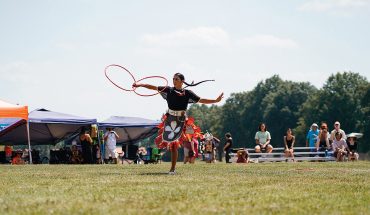by David Crabtree
The wind is cold. Biting. A December wind that rushes, howling by the gothic stone of the Chapel of King’s College, Cambridge. Cold December winds have blown over these stones since the 15th century. Even the War of the Roses could not halt them. On this Sunday, hundreds of us are braving these winter winds under quick-moving clouds. We shiver and wish for a few rays of sunshine.
We’re doing this because of what’s inside the chapel. We’re about to be part of a British tradition that extends back to 1918, the Festival of Nine Lessons and Carols.
This Advent-season service was first planned by a 34-year-old named Eric Milner-White, who had just been appointed Dean of King’s College. Milner-White was fresh off a stint as an army chaplain, an experience that convinced him the Church of England needed more imaginative worship. In 1934 the BBC began broadcasting the service he created on radio, and 20 years later, a television production was born. It would have been unthinkable then to disturb the mood of Christmas Eve with bulky cameras and lights, so even though it is broadcast worldwide on the day before Christmas, it is taped two weeks earlier.
Though the audience on this mid-December day is primarily professors, staff and family, this Sunday I am the guest of the College to observe how the BBC does this.
Little do I know how profoundly the immersion experience of the service will affect me.
As some 300 of us wait in the cold, a docent’s voice breaks the hum of conversation: “We’ve opened the doors, please queue here.” One by one, with candles guiding us, we make our way inside to the giant narthex. It is quiet. We walk past the choir stalls, where 30 men and boys will soon be seated to bring us the Christmas story in song. These voices of men, and those who will be men, have trained for months for this moment.
As I wait, my mind races. Who has sat in this seat before me? Kings? Queens? Ladies and lords? Whose eyes have seen these magnificent stained-glass windows? Whose ears have heard the same lyrics and the same tunes we are about to hear? How many voices before mine have sung these magnificent hymns?
The silence breaks as the choir processes to the altar. As each finds his place, I realize I’ve been given an incredible view. My seat is the last in the row and no one is standing next to me. I’m so close to the choir their surplices brush my arm as they move into position.
The choirmaster, Dr. Stephen Cleobury, enters, as he’s done for many years, and the BBC producer walks through, chatting on headset to the director. He checks lights and audio. Because of the importance of the recording, everything must be exact.
A short rehearsal is next as the producer wants the gathered voices united.
“Hark the herald angels sing….glory to the newborn king,” I think I sang, yet to this day I’m still not sure. The sound was so amazingly clear and focused and meaningful that I simply can’t remember. What I do remember is the resonance of the lyric and its lesson. In the beautiful and meaningful season of Advent, this promise was about to become true.
After the rehearsal, silence. We wait. And wait. The producer comes back and graciously thanks everyone for being patient. There’s a problem with an audio cable. I think, “Bet they didn’t have to worry about that in 1918!”
That insensitive (somewhat tacky) remark evaporates as I turn and spot the verger. This person leads the procession, as vergers have done for centuries. The job initially was to use a ceremonial rod, or virge (from the Latin virga, branch, staff or rod) to clear a path for the priests. Next comes an acolyte bearing the thurible and its incense.
The verger, thurifer, crucifer, and acolytes with candle torches stand at attention. The quietness is heavy with anticipation. A young voice, just chosen by Cleobury moments ago to break the silence, is about to sing. The boys train for this chance. Some of them are only 9 years old. Only the top voice is selected for this special moment. While no one wants to admit it, the competition for this honor is intense, as is the pressure on that chosen child. The lens of a high-definition camera will be focused on him so the eyes of all of Britain – the eyes of the world – can see and hear him, crystal-clearly on Christmas Eve.
This child handles the pressure with the coolness of a professional. It’s as if an angel is standing before us as his perfect pitch is carried through the ancient chapel.
“Once in Royal David’s City….” The words hang for a split second until the next melodic sound, “stood a lonely cattle shed.”
I am seized by the moment, the loveliness of the lyrics, and the fact I am here. After the first verse, the procession begins, and the congregants add our voices to what has become a thundering choir of 30 men and boys.
For the next 90 minutes, the nine Biblical lessons are read. We hear the proclamation of the Annunciation to Mary and the Christmas story from the Gospel of Matthew. Carols are sung. “It came upon a midnight clear” never sounded so clear. I felt I was in the stable as “Away in a manger, no crib for a bed,” gently tried to push pass my trembling lips. And I know I will never hear or sing Silent Night the same. I silently pray this will never end, yet I know it must.
Then comes a blessing from the Dean of King’s, praying we become “partakers of the divine nature.” We respond, “Amen.”
Before the last resonance of our “Amen,” the organ explodes with the opening notes of one of the most memorable hymns, Hark the Herald Angels Sing! The panes in the stained glass must be shaking. Loud and happy and filled voices are pouring, “Peace on earth and mercy mild….”
The choir and clergy recess and those of us who’ve made this journey begin to file out. I hear someone say: “Simply remarkable!”
“I wait for this every year, and it always gets better!” says George Blanton, a pipe fitter from Brighton. A professor from nearby Ridley College speaks up: “I’ve been coming for years. When I was a boy I would come to chapel just to hear the choir and the organ.”
Joyce Kramer is a retired hospice nurse and former agnostic. “The music and the lessons woke me and changed my life,” she says. Through tears, she continues: “I never knew I could care for others, I never knew I had a heart until this.”
“When was that?” I wonder.
Her eyes glisten. “Nineteen seventy-two. A year after the death of my little boy. He was 9. These voices remind me of him.”
James Lord is a first-year member of the choir. “Pressure?” his father Jason asks, rhetorically. “Sure there’s pressure. But James is 11. He juggles the practice, studies, athletics and the like and we want him to get the best of this he can.”
Wearing the choirboys’ signature morning coat and black top hat, James says, simply, “Hi, daddy.” A young boy, simply happy to see his father.
I leave knowing I have witnessed a tradition now spread world-wide. Over the decades the college has received copies of this service held in the West Indies or the Far East. These broadcasts have become part of Christmas for many far from Cambridge.
It will, forever, be part of mine.
At St. Michael’s Episcopal Church in Raleigh this Christmas Eve, our service will end with the packed sanctuary singing and rejoicing. The voices will climb in great crescendo. We will greet the first few minutes of the new happy Christmas morning in harmony with each other and in harmony with the world as we serenade and proclaim new hope to the universe: “Oh Come All Ye Faithful…word of the Father now in flesh appearing.”
As we do, I will hear the voices of Cambridge, and know that they – and voices all around the world – help me better understand the proclamation I have heard all my life…Come let us adore Him.
David Crabtree is an anchor/reporter for WRAL. He was ordained in 2004 as a Vocational Deacon of the Diocese of North Carolina, and is currently serving at St. Michael’s Episcopal Church in Raleigh.




